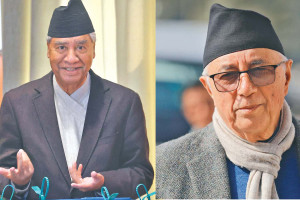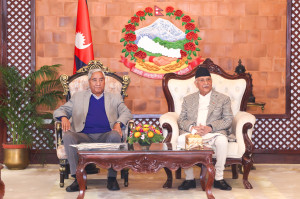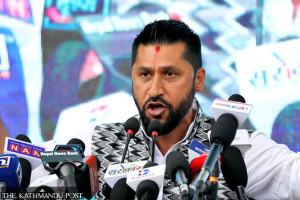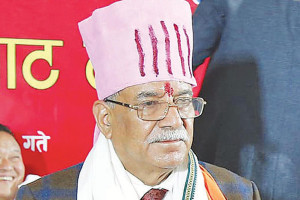Politics
The rise of Nagarik Unmukti Party
A look into how it became a formidable political force within a year of its establishment, the agenda it carries and its way forward.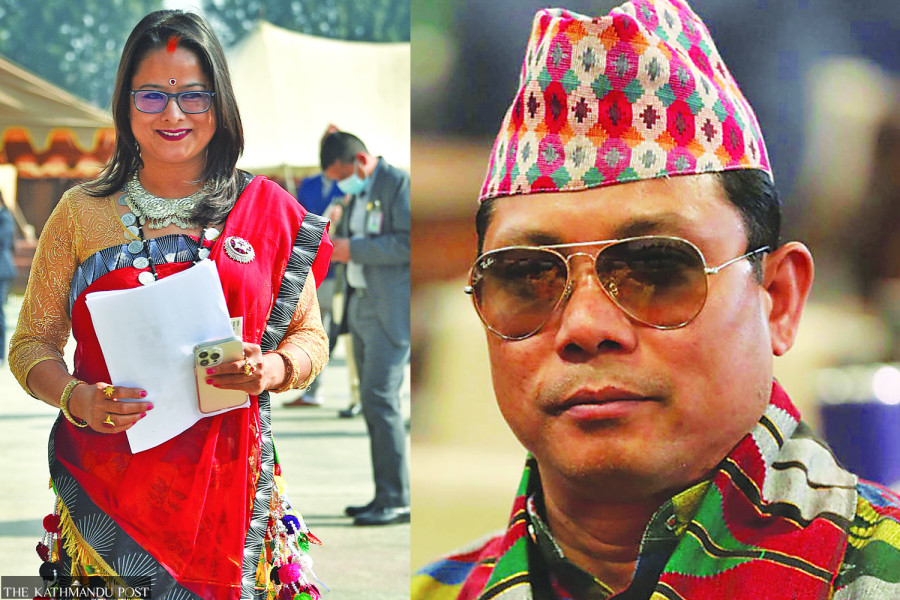
Binod Ghimire
When the Nagarik Unmukti Party was registered last year, not many had thought that it would emerge as a dominant regional force in no time. Formed by Ranjita Shrestha, the wife of Resham Chaudhary, a former lawmaker serving a jail term, the party has won four seats in the House of Representatives and has representatives elected to three out of the seven provincial assemblies. It became the largest party in Kailali district in the local elections that were held within five months of its formation. The party won the leadership of four local governments, and 99 ward chairs and members.
Let’s take a look at how the party came into being and how it soared to success even before it marks the first anniversary of establishment.
When was the party formed and why?
The Nagarik Unmukti Party was registered at the Election Commission on January 3 last year by Shrestha. Chaudhary is behind the bars after being convicted of masterminding the Tikapur killings in August 2015 that left eight police personnel and a toddler dead. Both Chaudhary and representatives from the Tharu community have been claiming that he was framed.
Chaudhary contested the 2017 elections and registered victory from Kailai-1 on the Rastriya Janata Party (RJP) ticket while he was still in hiding. In February 2018, he turned himself in to the police. Then, on March 7, 2019, he was convicted by the Kailali District Court, a judgement which was later upheld by the Dipayal High Court. Shrestha says they had to establish a new party because the RJP, now the Loktantrik Samajbadi Party, never seriously raised the demand for Chaudhary’s release. Chaudhary’s supporters have a feeling that Madhesh-based parties used the Tharu community as merely their vote bank to get to power. Establishing a separate party was necessary to address the concerns of the Tharu people because the Madheshi parties did little towards that end, Shrestha says.
What agenda does the party carry?
The Tharu people who have their dominance in five districts—Kanchanpur, Kailali, Bardiya, Banke and Dang—staged a series of protests in the wake of the promulgation of the Constitution of Nepal in 2015, demanding a separate Tharuwan province. Chaudhary, a media professional and artist, was involved in the protests. The killings took place when the agitation was at its peak. From the very next day, the police began a crackdown, arresting and torturing the Tharu people. Several houses were torched by ‘unknown’ groups. A restaurant and a radio station owned by Chaudhary were destroyed. Dozens of innocent Tharu people were tortured in detention. Justice for the Tharu people and their proportional representation in the state machinery are the two major causes the party is advancing.
How big is the party?
The party has made its presence felt in three out of the seven provinces in the recent elections for all three tiers of government. It won the seats of mayor and chairpersons in four local units of Kailali, in addition to 99 other positions of ward chairpersons and members. With four seats, after a lawmaker who won as an independent joined the party, it is the ninth-largest in the House of Representatives. It won a total of 12 seats in the provincial assemblies. The Shrestha-led party has become the fourth-largest party, winning seven and four seats in Sudurpaschim and Lumbini provincial assemblies, respectively. It also has one seat in the Madhesh Province assembly.
The party fared equally well in the proportional representation category of election and became the ninth-largest force in national politics. Political observers say the party’s performance so far has been remarkable, considering that it was formed just before the polls.
Is it a regional party?
The results of the recently held polls and the agenda it carries ground it as a regional party. It won the elections in constituencies where the Tharu community is dominant. So far, the party has organisational structures only in around a dozen districts in the plains where the Tharus have a sizable population. However, Shrestha, the party’s chairperson, says they don’t want to limit the Nagarik Unmukti Party to a regional party. “It will gradually be expanded in other parts of the country as well,” Shrestha told the Post. “We have started forming party organisations in more districts, particularly of Lumbini and Madhesh provinces. We will organise people from all the communities across the country.”
In the view of political observers, the party dwells on identity-based politics and it fared well because the Janata Samajbadi Party and Loktantrik Samajbadi Party left the identity issue behind and instead got engaged in politicking with no other motive than to secure power. They claim that the people from Tarai/Madhesh award the parties that play the opposition, pressuring the parties in power to address their concerns. History shows that Nepal’s regional parties have not fared well when they get enmeshed in lust for power.
What do the people expect from the party?
Tharu activists say people are keeping a close eye on the party’s activities. In addition to the release of Chaudhary, the party’s priority should be towards unveiling the report of the Lal Commission and ensuring justice to the Tharu community who have suffered at the hands of the authorities. The commission was formed to investigate the deadly violence involving police and protesters in the run-up to the promulgation of the constitution in September 2015.
Shravan Chaudhary, coordinator of Tharuhat Tharuwan Rastriya Morcha, said the leadership of the Unmukti Party must not forget that the Tharu people have huge expectations from it. “We believe the Lal Commission independently investigated the atrocities during the protests,” he told the Post. “We want to see the party taking the necessary steps towards unveiling it.”
The commission led by Girish Chandra Lal, a retired justice from the Supreme Court, was formed in February 2016 and submitted its report to the then prime minister Sher Bahadur Deuba on December 16, 2017. But the report is gathering dust in the government’s drawers. Despite ruling from the House of Representatives, twice, the successive governments refused to make the report public. Madheshi parties have been making it a political agenda for a long time.
Will the party join the government?
Nagarik Unmukti Party is one among seven parties that have extended their support to Prime Minister Pushpa Kamal Dahal. However, it hasn’t joined the government. Release of Chaudhary was the party’s bottom line in joining the Dahal Cabinet. The erstwhile Sher Bahadur Deuba government in December had recommended President Bidya Devi Bhandari to issue an ordinance to revise the Criminal Code, clearing legal hurdles to withdraw cases that are sub-judice in the Supreme Court. Bhandari is still sitting on the ordinance that has received serious criticisms. There are only two ways for Chaudhary to get released—either if the Supreme Court gives him a clean chit or if the criminal code gets modified.
The party’s whip Ganga Ram Chaudhary has said it will not join the Dahal government as the ruling parties have not mentioned the Tharu uprising in their common minimum programme.




 21.12°C Kathmandu
21.12°C Kathmandu







